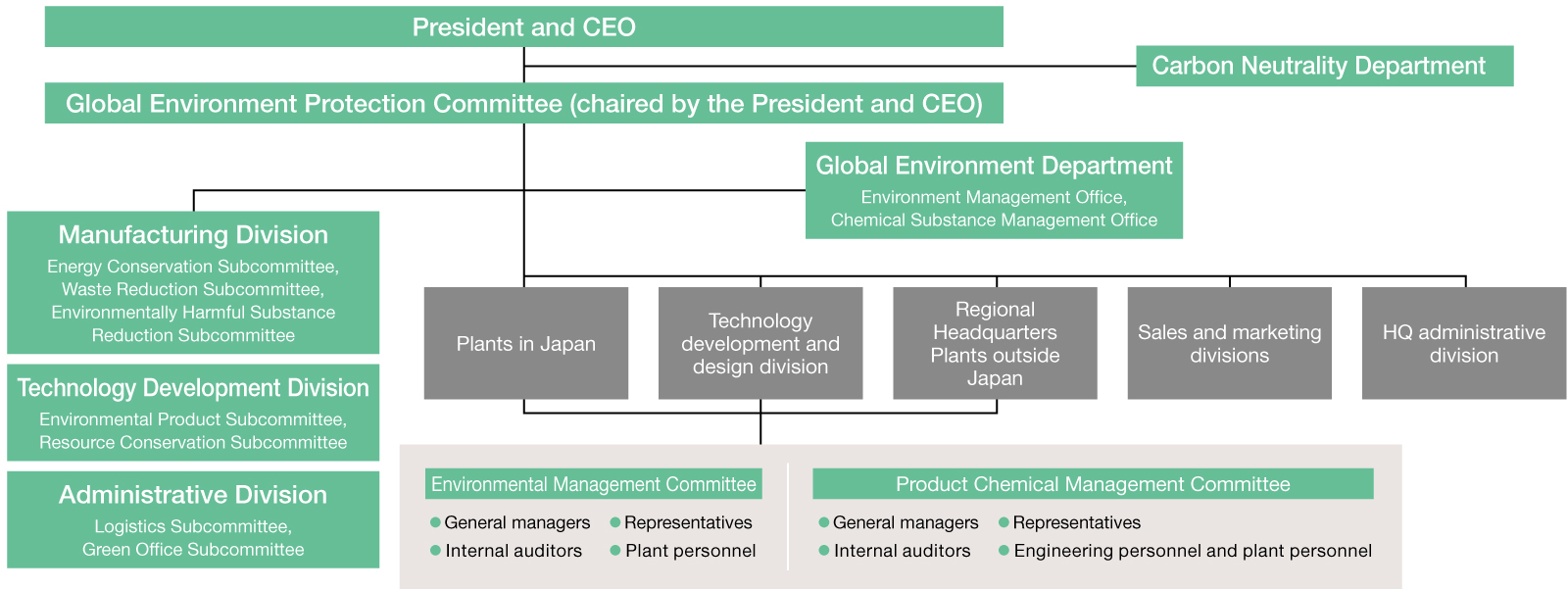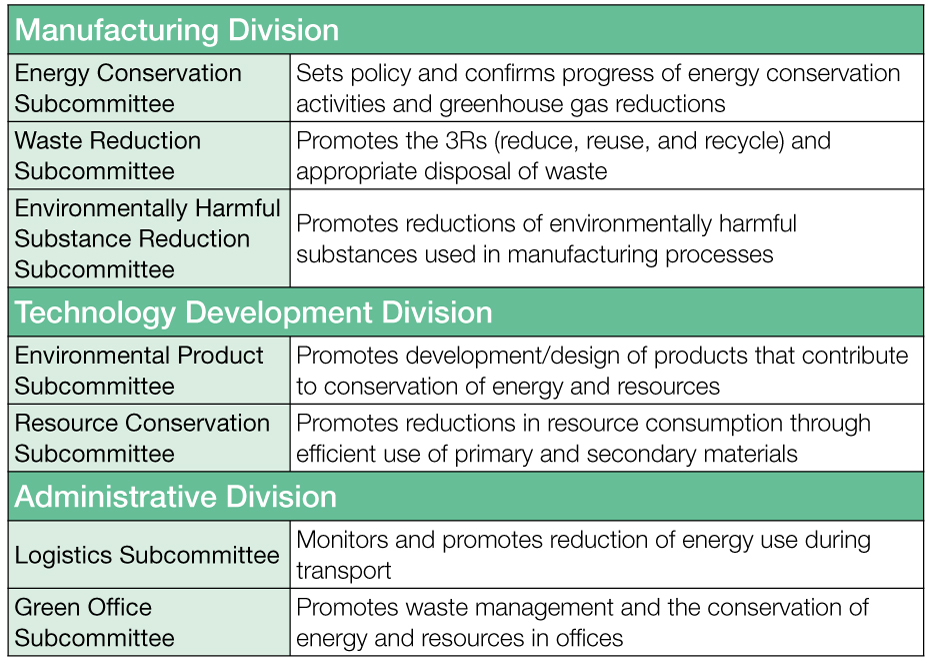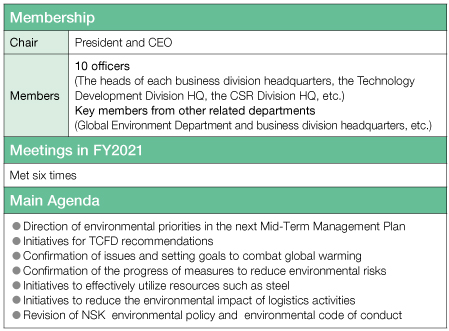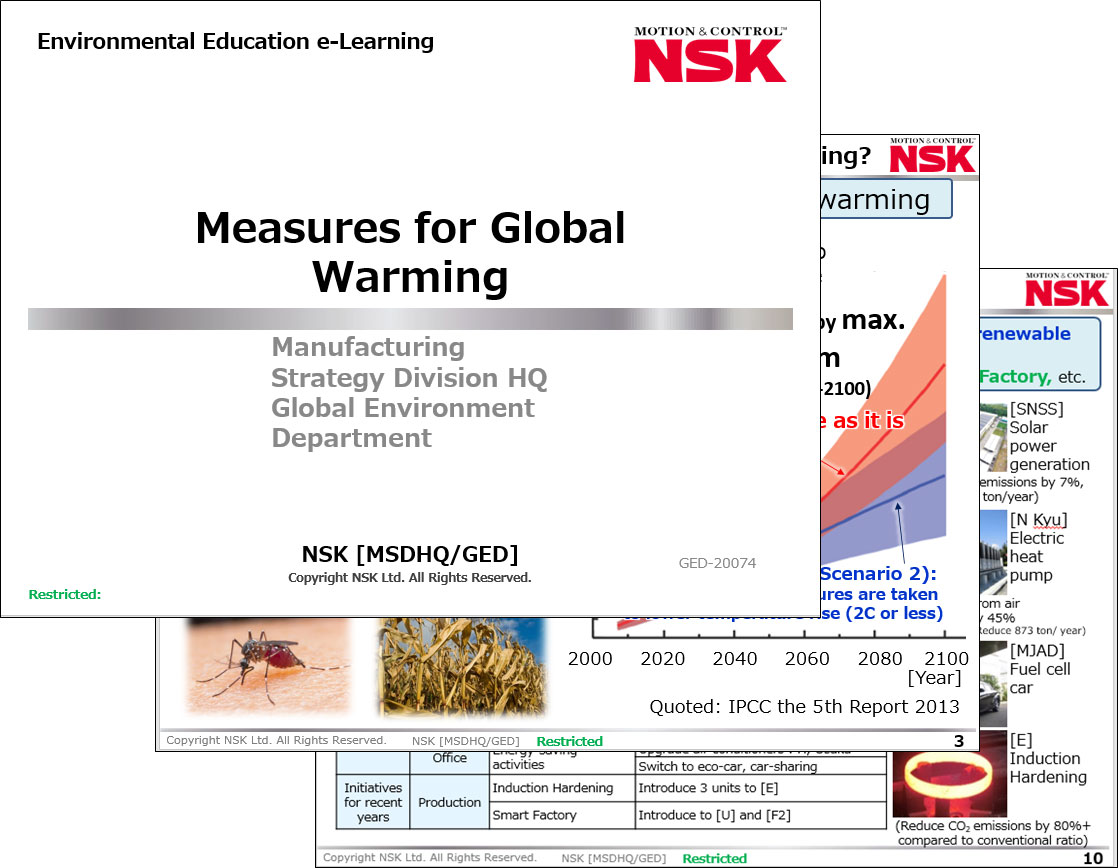
Environmental Management
NSK’s Approach
The NSK Group is determined to deliver sustained increases in corporate value and to help build a sustainable world by proactively pursuing advanced environmental practices. In January 2019, we added the environment as one of NSK’s core values and devised a vision for 2050. In April 2019, we established a mid-term environmental action plan through fiscal 2021 as well as a long-term environmental action plan through fiscal 2026 by backcasting from this vision. The long-term plan specifies the SDGs that will be the focus of the NSK Group’s contributions: Goals 6, 7, 12, 13 and 15.
System
Environmental Management System
The NSK Group has established a Global Environment Protection Committee under the supervision of the Board of Directors in order to reflect social expectations in the Group’s environmental activities. The Global Environment Protection Committee, in essence, serves as the highest decision-making body with respect to environmental issues. Its members include the President and CEO as chairperson, as well as executive officers from related departments. The committee discusses the NSK Group’s mid- to long-term environmental action plans and environmental initiatives, and refers particularly important matters to the Board of Directors after deliberation in the Operating Committee. Based on the Global Environment Protection Committee’s decisions, theme-based specialized subcommittees, working with the Head Office’s Global Environment Department, drive progress Group-wide by promoting daily environmental protection activities.

Click to enlarge



Initiatives
Acquiring and Maintaining Environmental Management Certification
The NSK Group implements the PDCA cycle for environmental management at all sites.
Environmental initiatives are important at sites involved in development, design, manufacturing, and distribution because these processes have especially large environmental impacts. We require these sites to obtain external ISO 14001 certification—the international standard for environmental management systems—within three years of full-scale operation, such as the start of mass production. We increase the effectiveness of our management system by obtaining certifications for each site and undergoing regular reviews by third-party organizations.
Environmental Compliance
Environmental Audits
Regular internal audits and third-party audits are conducted at each site around the world. Additionally, the NSK Head Office’s environment-related divisions and regional headquarters conduct audits designed to prevent oil leakages and spills, ensure compliance with environmental laws, and properly manage waste and environmentally harmful substances.

Environmental Compliance
The NSK Group does more than merely comply with environmental laws; we adhere to rigorous internal standards that go beyond legal obligations to prevent air and water pollution. In the event of an accident or legal violation that has an impact on the external environment, we promptly report the matter to administrative authorities, investigate the cause, and implement measures to prevent recurrence.
Remediating Soil and Groundwater Pollution
The NSK Group completely eliminated the use of chlorinated organic solvents by fiscal 2003. However, we are continuing to clean up six sites where past use has left traces of contamination in soil and groundwater. We regularly monitor groundwater and report our progress to agencies.
Environmental Education and Training
The NSK Group recognizes that the key to increasing the effectiveness of environmental protection initiatives is for every employee to take action based on sound knowledge. This is why we constantly work to raise employees’ environmental awareness and provide rank-based training to deepen knowledge. This consists of general environmental training for all new employees, environmental e-learning focused on different themes and conducted several times a year for all employees, and training tailored to different objectives for the environmental managers in each department.
